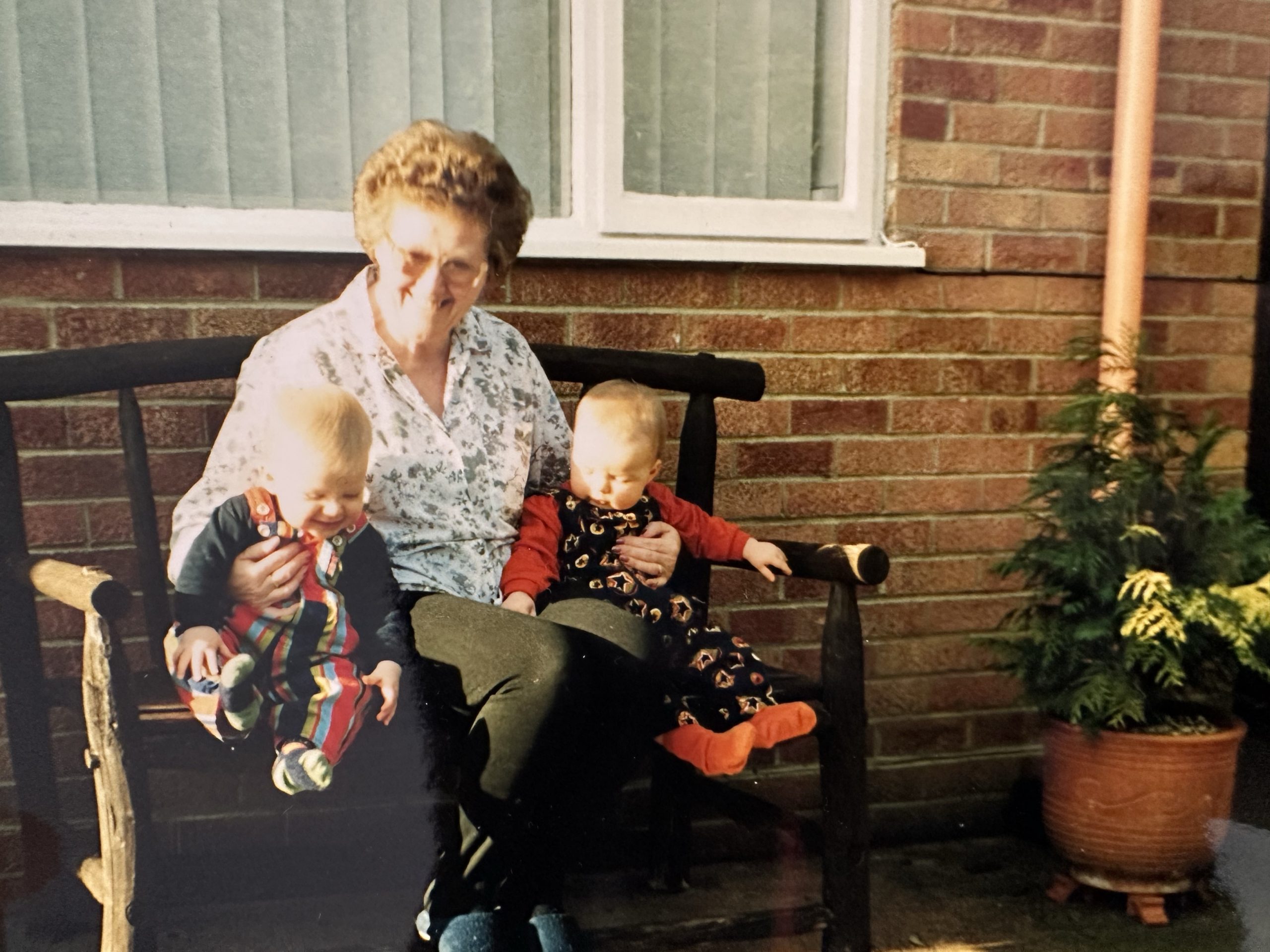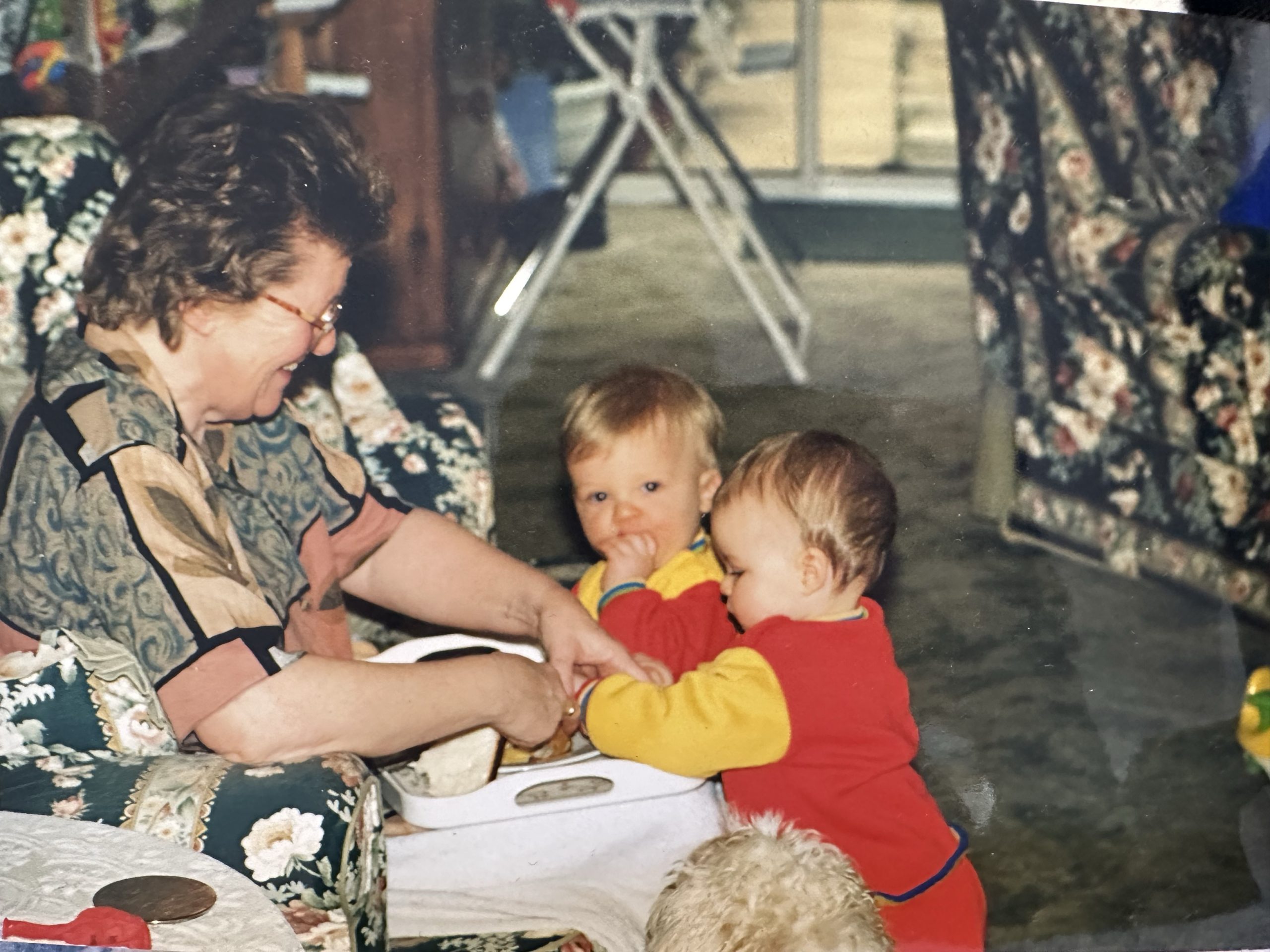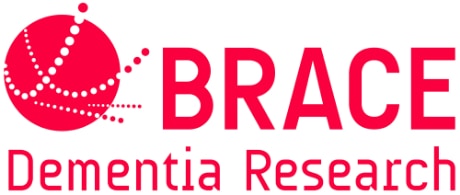Lib and Nan


“My Nan, Pat, loved her family. She had five children, followed by five grandchildren and two greatgrandchildren. When my twin brother and I were born, my Nan actually moved from Stafford in the Midlands down to Somerset to help my mum while we were little. Her family and my Grandad were the centre of her world, and I’ll always remember how safe and loved we felt in our grandparents’ home.
My Nan and Grandad met at their local youth club when they were just 15 and 16. My Grandad quickly asked Pat out, and they were together from that point on. I have many happy memories of summer holidays spent with my twin brother and cousins, playing with their dogs and being completely spoiled. Each year, we’d go with them to Devon and Dorset, giving our parents a well earned break. Nan was often found knitting or looking after us grandchildren, and she had endless patience for tickling my back or playing with my hair - something I was constantly asking her to do.
But when Nan was in her mid-60s, things started to change. Grandad was the first to notice something was wrong when she struggled to read her magazines and forgot how to knit, things she had always loved and done daily. After several trips to the doctor, Nan was diagnosed with vascular dementia.
As time went on, she slowly started to change. She remained kind and caring, always laughing at Grandad’s jokes and happy to see her family. But she became more confused, found it harder to keep up in conversation, and began withdrawing in social situations.
Grandad did an incredible job of taking on the cooking, cleaning, and household chores, and caring for her so patiently. He made her laugh every day with silly little things, even in the later stages, and I’ll never forget her smile and the way she would laugh at him. But it was heartbreaking to watch her world shrink, and for all of us who loved her, it was devastating to feel her slipping further away each time we saw her.
Though there was still lots of laughter, it was hard to watch her change. It was painful to see her slowly forget more and more, losing the ability to do things that were once so easy, even just being able to ask about our day or join in with a conversation. None of us will ever forget the love she poured out to all of us during her life. But we’ll also never forget watching her become confused, frustrated, and scared.
That’s why I do what I do. That’s why I work for a dementia research charity. My hope is that one day, no family will have to go through what we went through. Because there will be hope. There will be treatments that give families more time together, to share stories and make memories. There will be more knowledge about how to prevent dementia in the first place.
Vascular dementia, like my Nan’s, is one of the most common forms of dementia, yet there is still so much we don’t understand. The research we support, like that taking place at the South West Dementia Brain Bank, is helping scientists uncover the links between vascular health and dementia. It gives me hope that one day, families like mine won’t have to lose their loved ones to dementia.”
Share this page
